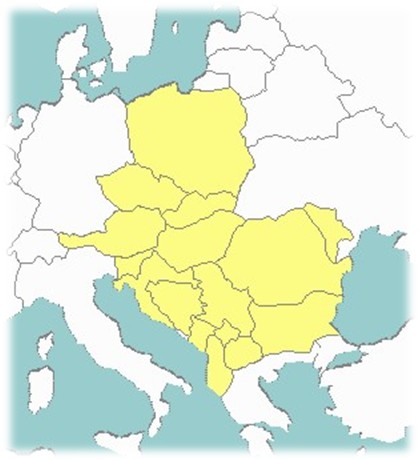









Warsaw University of Technology, Poland
Faculty of Mechatronics
Institute of Micromechanics and Photonics
Prof. DSc Eng. Zygmunt RYMUZA
Short description, research and educational contributions
The Faculty of Mechatronics is a multidisciplinary one, as education and scientific activities are focused on modern technical problems including automatic control, electronics, computer science, electrical engineering, mechanics, robotics, optics, biomedical engineering and metrology. According to the definition given by International Federation for the Theory of Machines and Mechanisms -Mechatronics is "synergistic combination of precision mechanical engineering, electronic control and systems thinking in the design of products and manufacturing processes ". The Faculty consists of following independent units: The Institute of Automatic Control and Robotics (IACR); The Institute of Metrology and Biomedical Engineering (IMBE); The Institute of Micromechanics and Photonics (IMPh). The Faculty of Mechatronics cooperates with many domestic and foreign scientific institutions and organizes international seminars, workshops and conferences.
The program of research and studies of Institute of Micromechanics and Photonics (IMPh) is oriented into two main streams; micromechanics, design (with advanced softwares) of precision instruments and devices including systems applied in medicine practice and the optical engineering systems, mainly advanced optical measuring systems. More than 1200 students both on Bachelor and Master levels and 60 PhD students are actually involved in the education process.
The IMPh consists of three divisions: Division of Design of Precise Instruments and Devices; Division of Optical Engineering; Division of Applied Mechanics. The first one is active in the research and education of the design and testing of precise instruments as well as mechanical bioengineering devices. The research is oriented on microtribology studies of miniature mechanisms, microsystems and components as well as drive systems used in miniature devices and mechanical bioengineering systems for different applications in the hospitals e.g. used in rehabilitation, joints of broken bones etc. The second division is very advanced in the research leading to elaboration of modern measuring optical systems including based on moire, interferometry, holography as well as systems used for optical reconstruction and documentation (of e.g. art objects) and projection systems. It is the area of research and education related to optomechatronics. The education and research in the third division is oriented into applied mechanics relating to the education of fundamentals of mechanics and strength of materials including advanced dynamics. The research is connected to the studies of mechanics of materials, micro-scale components and mechanical problems appearing in biological systems (which studies should lead to optimum design of implants, prostheses etc).
Some of educational activities of IMPh relate to the topics of current projects are: Microtribology and Tribology; MEMS (Micro Electro Mechanical Systems) Devices; Micromechatronics; Micro/Nanotechnology.
The collaboration within the CEEPUS program will be realized in the micromechanics area in the:
· Laboratories of Microtribology;
· Laboratory of Micro/Nanotechnology (clean-room lab).
Topics of education and research work for contribution to the current project:
• Microtribology and Tribology - Scale problems in tribology, Tribometry in macro and micro /nanotribology;
• MEMS (Micro Electro Mechanical Systems) Devices - design, fundamental techniques of fabrication, micromechanical sensors and actuators, metrology, tribological problems, applications;
• Micromechatronics - metrology and quality evaluation, friction/stiction and reliability of micromechatronical devices;
• Micro/Nanotechnology;
• Micro/Nanotribology; Micro/Nanomechanics; MEMS/NEMS;
• Surface and interface studies of Micro/Nanosystems - surface topography and energetic studies in micro/nanotribological behavior of the micro/nanotribological systems;
• Materials used in Micro/Nanotechnologies - in particular in the form of ultrathin films (with nanometer thickness);
• Use of advanced test instruments and elaboration of new test devices and tools.


Copyright © 2012-2015, UCTM CEEPUS Tribology
Participating institution - partner






